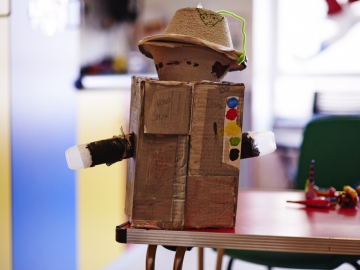Child
- About
- Meet The Team
- Conditions
- Dental Practitioners: Dental care in children at risk of Infective Endocarditis
- Looking after your child’s oral health
- Coming for an echocardiogram
- Outpatient Appointments
- Preparing to Come into Hospital for Surgery
- On Admission to the Children's Ward
- Visiting
- Operation Day
- Children's Intensive Care
- Daily Routine on Intensive Care
- Managing your child's discomfort
- Going Home
- Children's Cardiac MRI Scan
- Cardiac Catheter
- Reveal Device
- Ablation Procedure
- Pacemakers
- INR and Warfarin
- Lifestyle and Exercise Advice
- School Advice
- Attachment
- Yorkshire Regional Genetic Service
- Advice & Support Groups
- Your Views
- Monitoring of Results
- Second Opinion
Managing your child's discomfort
-
Whilst your child is recovering from surgery our aim is to promote comfort at all times. Hopefully by communicating with the doctors and nurses your child will not experience any pain at all, but will at times feel some discomfort.

-
Pain relief following surgery
• After the operation when your child wakes up on intensive care they are often quite drowsy due to the anaesthetic and the pain relief being given.
• Morphine is usually used as pain relief immediately after surgery and will be given through a drip in to your child’s vein alongside regular paracetamol.
• Your child will likely return to the cardiac ward on morphine and this will be weaned gradually as they start to recover.
• If your child experiences any pain it is very important that you inform the nurses, this way they can adjust the pain relief being given to make them comfortable. If necessary they nurses may ask the specialist pain team to come review.Morphine
• A strong analgesic (painkiller).
• Can be given intravenously (in a drip through a vein) or as a tablet or liquid.
• Depending on your child’s age and understanding they may be given the morphine via a pump with a hand set so they can give themselves the morphine when they feel they need it most. This system has a ‘lock out’ so your child can’t give themselves too much and will be explained by the nurses.
• As your child starts to recover the intravenous morphine will be reduced and converted to an oral version.Diclofenac
• A moderate painkiller and can only be given as tablets or medicine.
Dihydrocodiene
• A moderate analgesic that is usually given as a tablet.
Paracetamol
• A mild analgesic and is also helpful at bringing temperatures down.
• Used frequently after heart surgery, usually alongside other pain relief.Pain relief at home
• When your child gets discharged home they may experience some mild discomfort at times and will be advised to take paracetamol for this.
• The nurses on the ward will discuss this further upon discharge.
